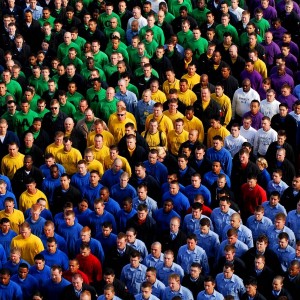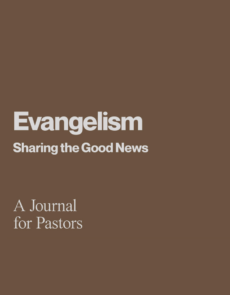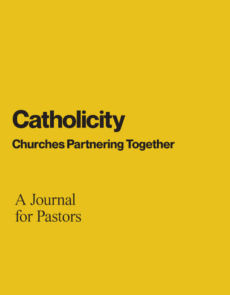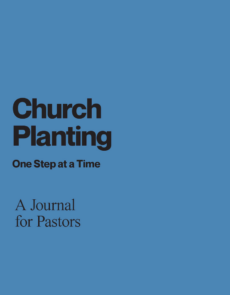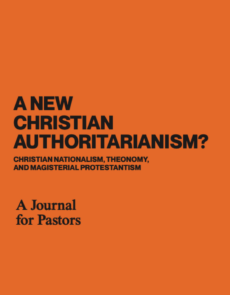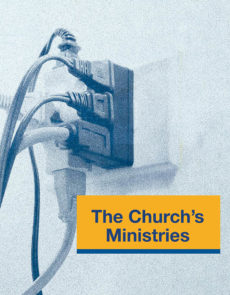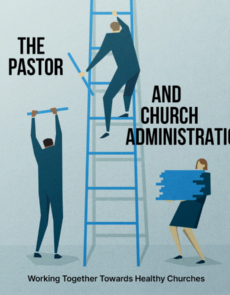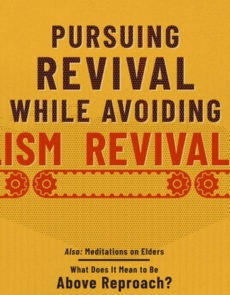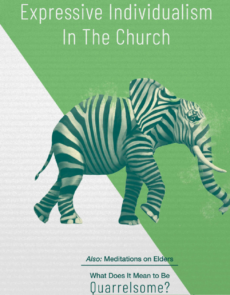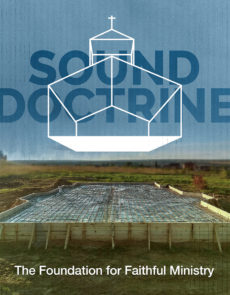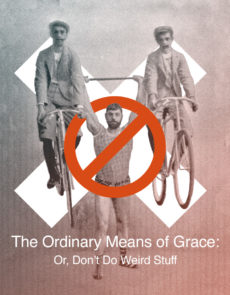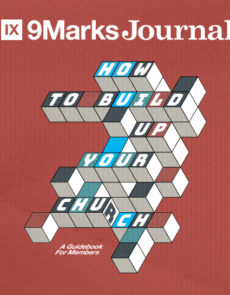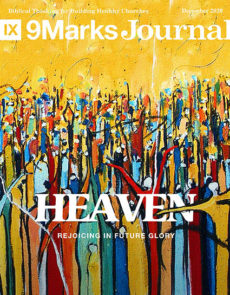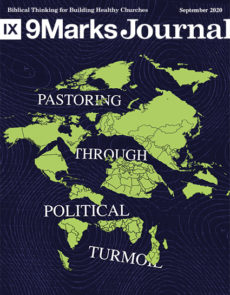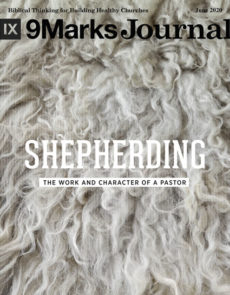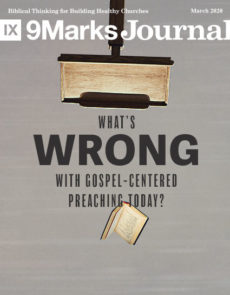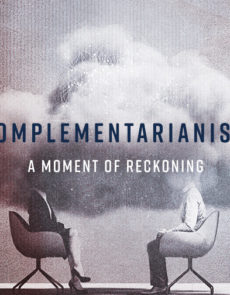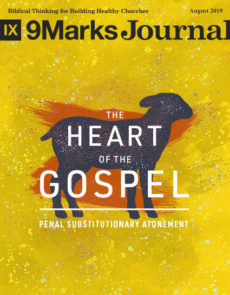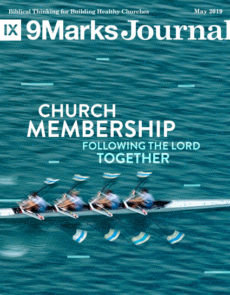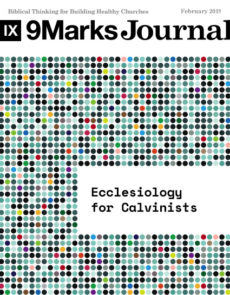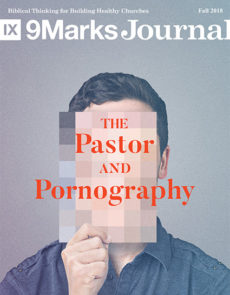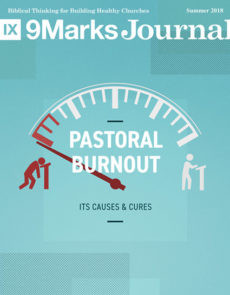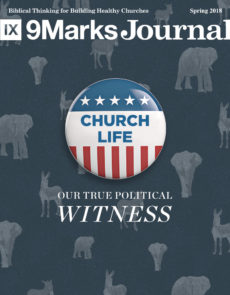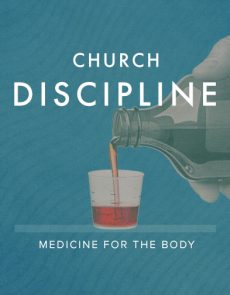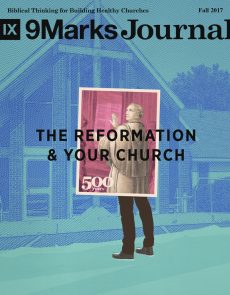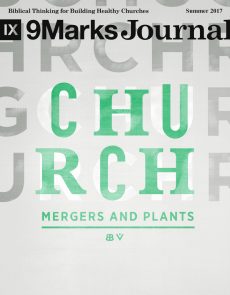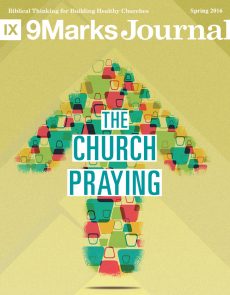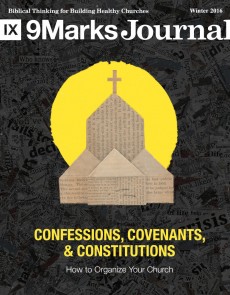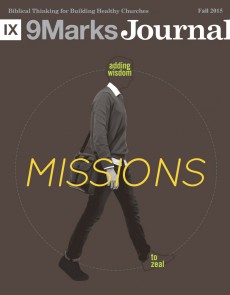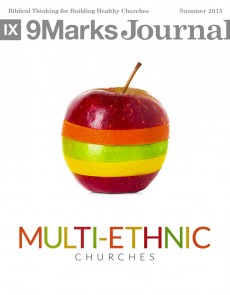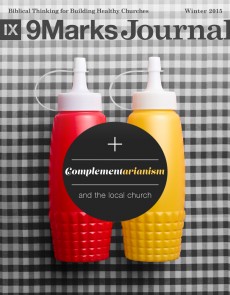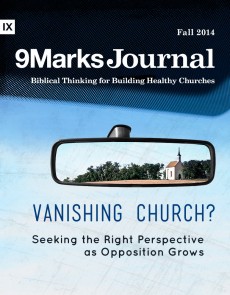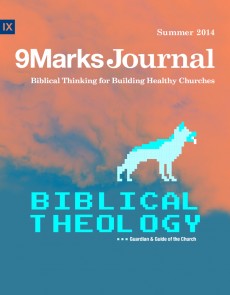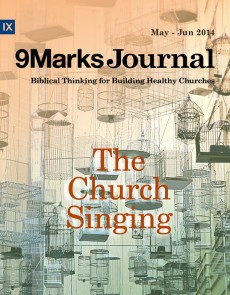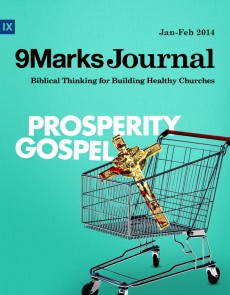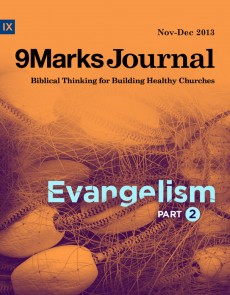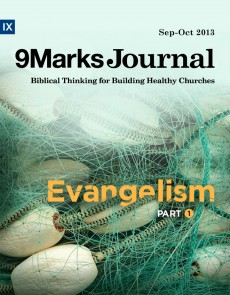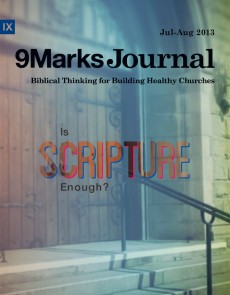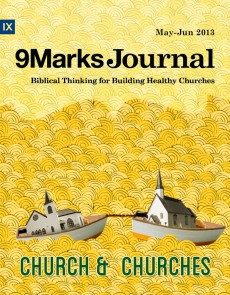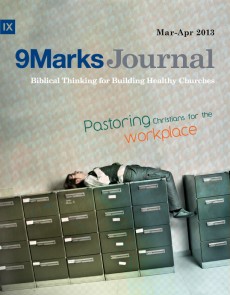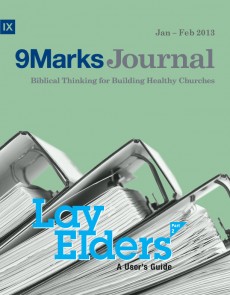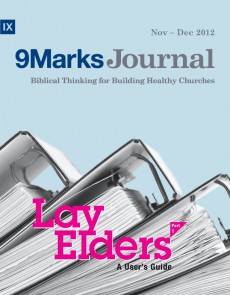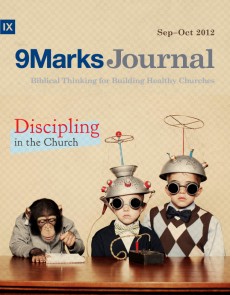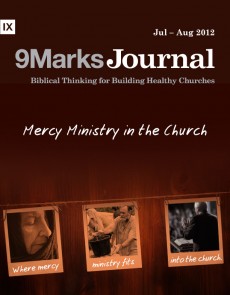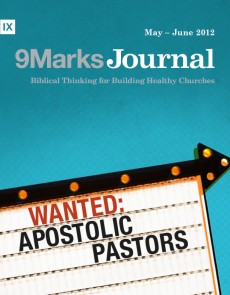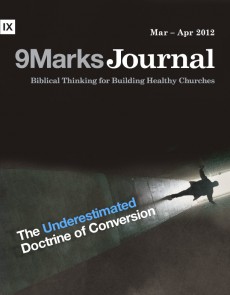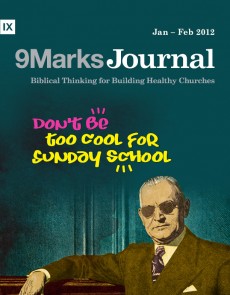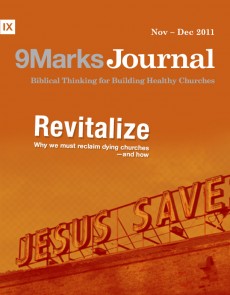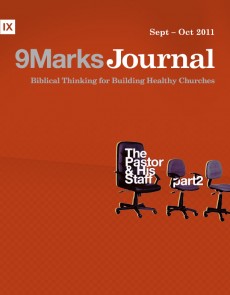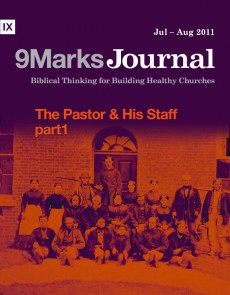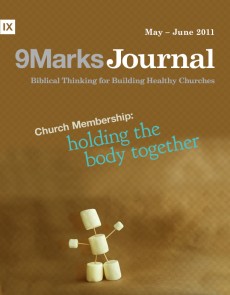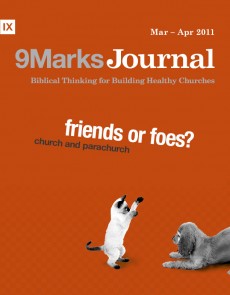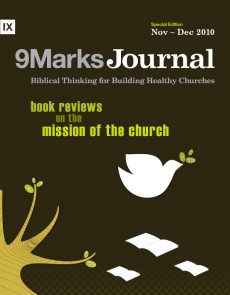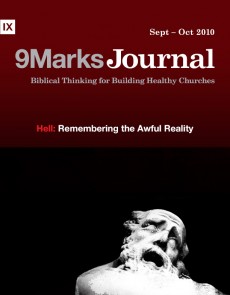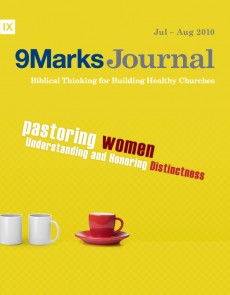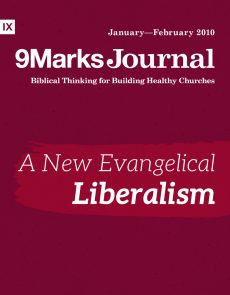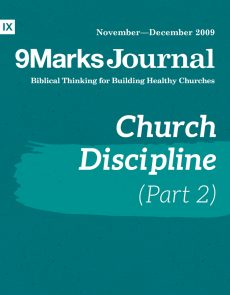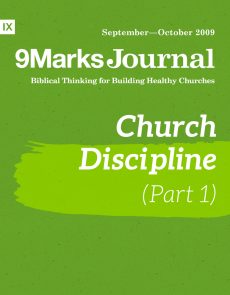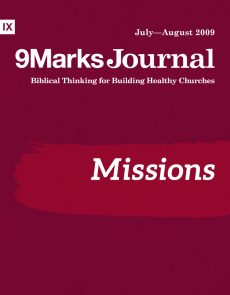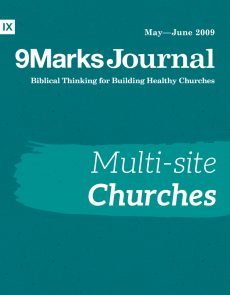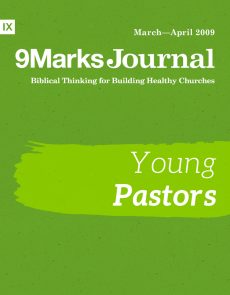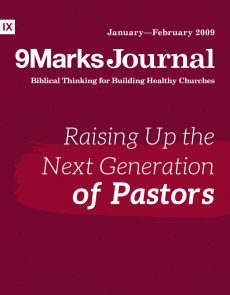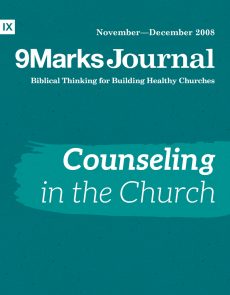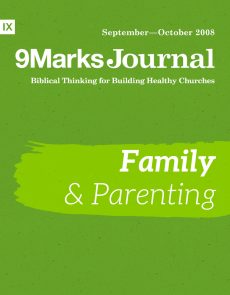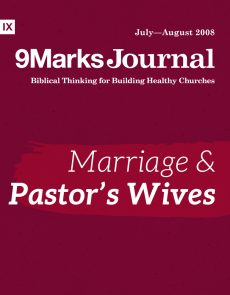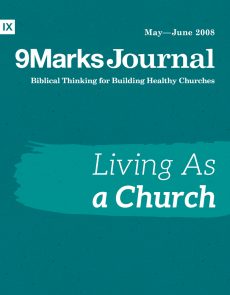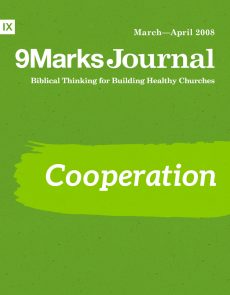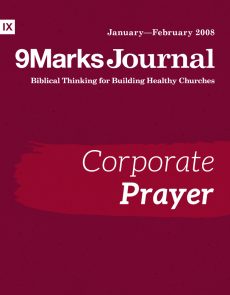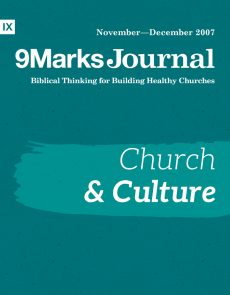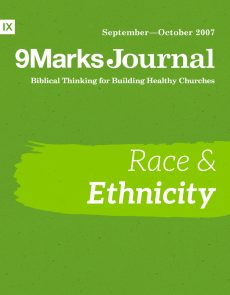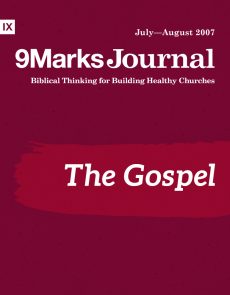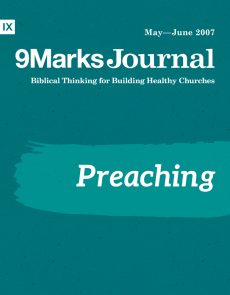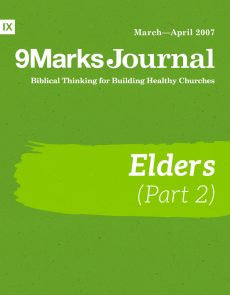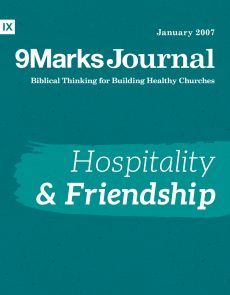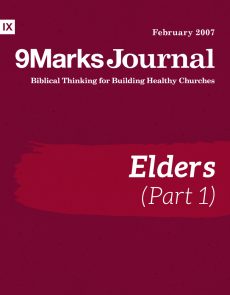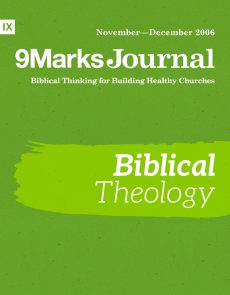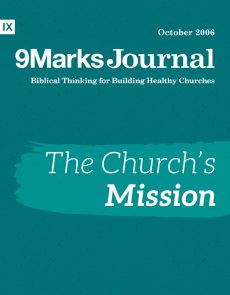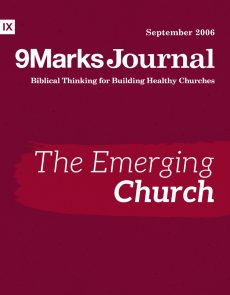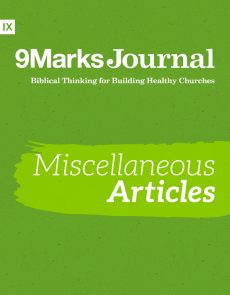RACISM AND RACIAL RECONCILIATION

How Do We Respond to Cultural Crises Over Race?
By Brian Davis | 9Marks Journal: Multi-Ethnic Churches | 09.25.2015There are few responses to hurting more hurtful than silence.
Racial Reconciliation, the Gospel, and the Church
By Jarvis J. Williams | 9Marks Journal: Multi-Ethnic Churches | 09.25.2015In order to understand what gospel-grounded racial reconciliation is and what it means for the church, we need a better understanding of race.

Racism as Favoritism
By Trillia Newbell | 9Marks Journal: Multi-Ethnic Churches | 09.25.2015Find freedom from anxiety and fear, and celebrate the unifying, favoritism-destroying power of the gospel.

Don’t Be Color-Blind at Church
By Isaac Adams | 9Marks Journal: Multi-Ethnic Churches | 09.25.2015Christians should be both colorblind and color-conscious. Why? Because that’s what God is like.

5 Steps to Racial Peace-Making
By Russ Whitfield | 9Marks Journal: Multi-Ethnic Churches | 09.25.2015It’s not magic, it’s discipleship.

Why the Race Conversation Is So Hard
By Jonathan Leeman | 9Marks Journal: Multi-Ethnic Churches | 09.24.2015The race conversation is so hard, but shouldn’t our churches be the first places on the planet where we talk about these things, and listen to one another?
MULTI-ETHNIC CHURCHES

Re-Thinking Homogeneity: The Biblical Case for Multi-Ethnic Churches
By Aubrey Sequeira | 9Marks Journal: Multi-Ethnic Churches | 09.25.2015Does the Bible support homogeneity? Or does Scripture set forth a different vision for the local church?

Building a Multi-Cultural Ministry on Gospel Doctrine
By John Folmar | 9Marks Journal: Multi-Ethnic Churches | 09.25.2015Robust truth will keep churches and friendships together amid their diversity, whereas lowest-common-denominator theology promotes strife and feebleness.
Pastor’s Forum: Can You Reverse-Engineer a Multi-Ethnic Church?
By A. Davis, G. Gilbert, J. Onwuchekwa | 9Marks Journal: Multi-Ethnic Churches | 09.25.2015Can you manufacture a multi-ethnic church programmatically, pragmatically, or consumeristically?

Lessons Learned from South Africa about Multi-Ethnicity in Churches
By Gustav Pritchard | 9Marks Journal: Multi-Ethnic Churches | 09.25.2015Here are 7 suggestions for pastors so that they might shepherd God’s flock more faithfully in light of the diversity of his sheep.

Does the Asian-American Church Need an Adjusted Gospel?
By Jeffrey K. Jue | 9Marks Journal: Multi-Ethnic Churches | 09.25.2015Many say, “The ‘white Western gospel’ needs to be adjusted, or it will become obsolete.” Can this possibly be true?

One Example of Reaching Your Multi-Ethnic Neighbors
By Juan Sanchez | 9Marks Journal: Multi-Ethnic Churches | 09.25.2015Once one understands the place of the local church in God’s eternal plan, it’s worth re-thinking both ethnic-language church planting and ethnic-language ministry in general.
THE JOYS AND CHALLENGES OF MULTI-ETHNICITY

The Joys and Challenges of a Multi-Ethnic Church
By John Smuts | 9Marks Journal: Multi-Ethnic Churches | 09.25.2015The joys and the challenges of pastoring a multi-ethnic congregation are mostly two sides of the same coin.

Why White Churches Are Hard for Black People
By Isaac Adams | 9Marks Journal: Multi-Ethnic Churches | 09.25.2015These aren’t true for every white church or for every black person, but the hope is that they lead to graceful and authentic conversation, to prayer, to action, and to joy in our Lord.

Being Asian American in a White Church
By Tim Chiang | 9Marks Journal: Multi-Ethnic Churches | 09.25.2015There is no singular Asian-American experience. But for many, navigating the differences between their two cultures brings about difficulty—even in the church.

Helping Asian Churches Become Multi-Ethnic
By Patrick Cho | 9Marks Journal: Multi-Ethnic Churches | 09.25.2015How can a church with a particular ethnic identity strive to become more multiethnic? Here are eight principles to consider.
BOOK REVIEWS
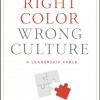
Book Review: Right Color, Wrong Culture, by Bryan Loritts
Review by Sam Lam | 9Marks Journal: Multi-Ethnic Churches | 09.25.2015Bryan Loritts has written an engaging “leadership fable” that helps church leaders consider how to be more sensitive to ethnic realities so that they can better care for their churches.
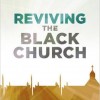
Book Review: Reviving the Black Church, by Thabiti Anyabwile
Review by Jemar Tisby | 9Marks Journal: Multi-Ethnic Churches | 09.23.2015In this book, Thabiti Anyabwile diagnoses the state of the Black church and prescribes medicine from the Scriptures
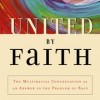
Book Review: United by Faith, by Curtiss Paul DeYoung, et al
Review by Russ Whitfield | 9Marks Journal: Multi-Ethnic Churches | 09.25.2015Though it leaves much to be desired in terms of theological depth, United By Faith is a very welcomed contribution and a worthy read, particularly for American Christians.

Book Review: Bloodlines, by John Piper
Review by H. B. Charles | 9Marks Journal: Multi-Ethnic Churches | 09.25.2015This is a wise, clear, and faithful treatment of racial ethnicity and biblical Christianity that should be read widely.
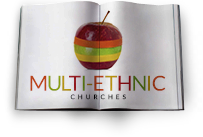
Free Download
PDF, ePub, and Kindle files will be sent to this email address. As part of our community, you will receive content & communication from 9Marks. You may unsubscribe at any time.
Support 9Marks
Our work is possible by the generosity of our readers. Give Today




